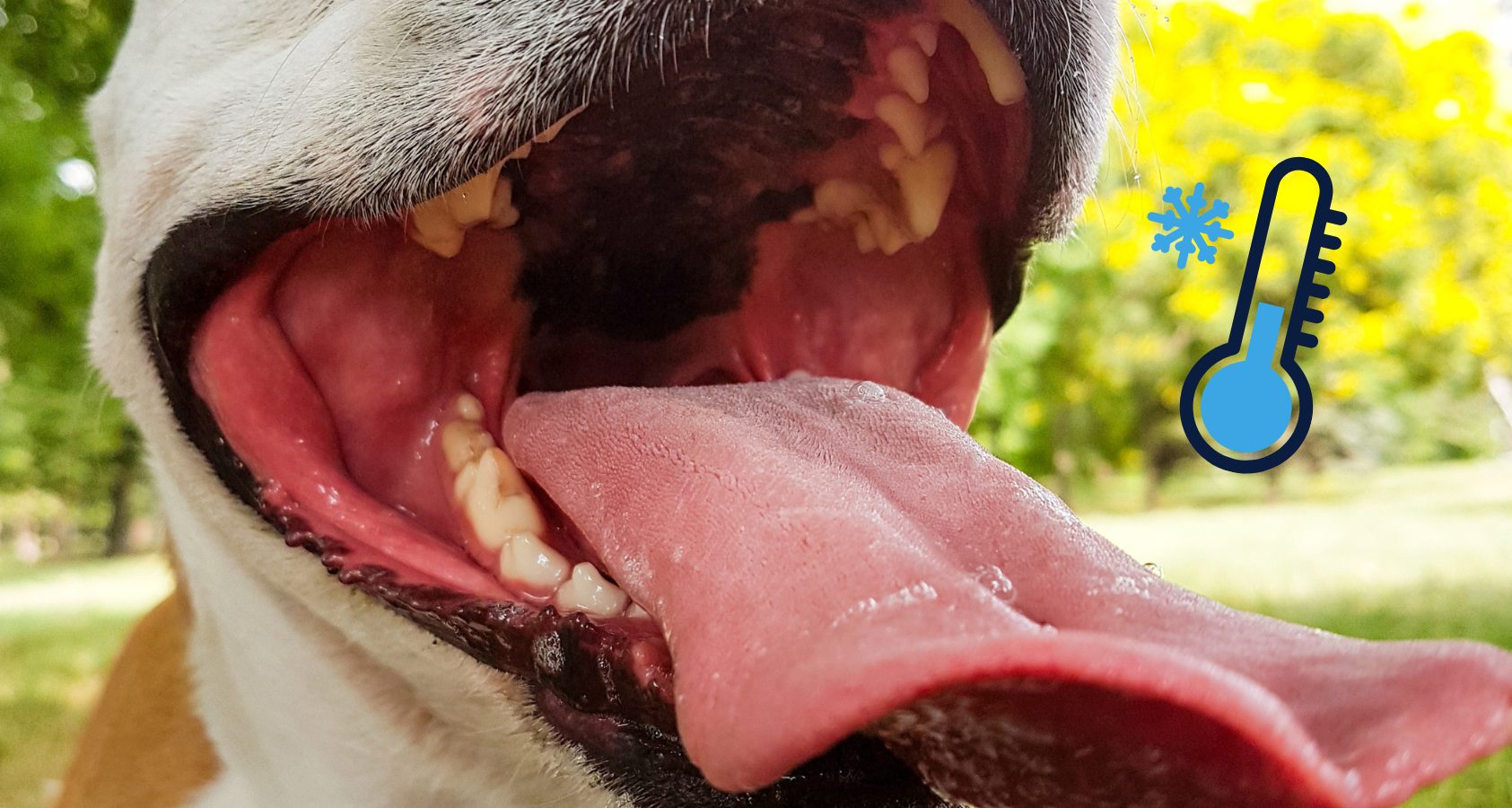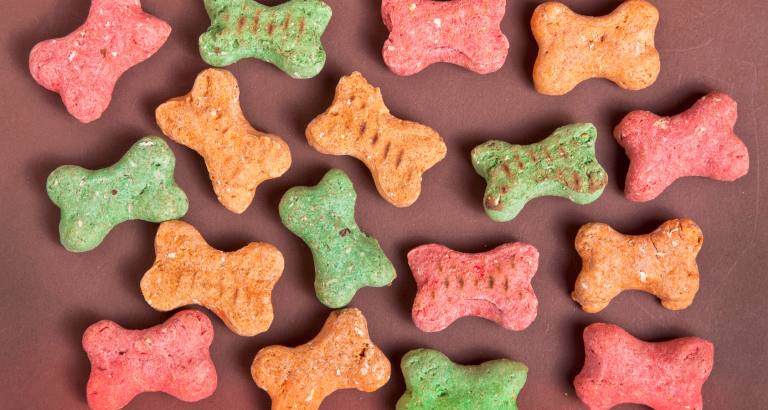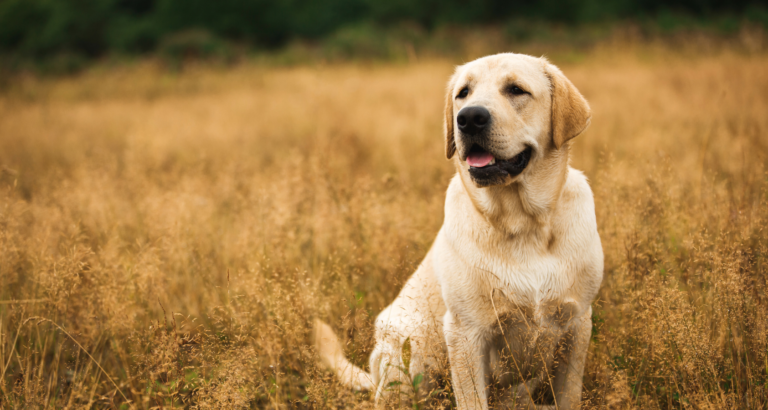9 Reasons Why Your Dog’s Mouth Is Cold
Last updated on March 20th, 2023 at 07:45 pm
Reading Time: 7 minutesThis post may contain affiliate links. If you click and buy we may make a commission, at no additional charge to you.
9 Reasons As To Why Your Dogs Mouth Might Be Cold
Your dog’s mouth might feel like a warm paradise, but it’s actually quite the opposite.
Dogs have an excellent sense of smell, thanks to their 100 million scent receptors that line their nasal cavity and help them sniff out hidden treats. They also have moist mouths and super-sensitive taste buds. These are just some of the reasons your dog’s mouth can feel so chilly to you.
To understand why your pup’s mouth feels so chilly, take a look at a possible 9 different reasons as to why their mouths might be cold.
Why Is My Dog’s Mouth So Cold?
Dogs rely on a complex network of blood vessels and nerves beneath the skin in their mouths to maintain their body temperature. When the temperature outside is cooler than the inside of your dog’s mouth, the tissues inside their mouth will be cooler than their body as well. This makes their mouth feel cold and dry.
There can be many reasons for a cold dog mouth. Below we listed the top nine so continue reading to find out.
Why Is My Dog’s Mouth Cold and White?
Dogs have white, pink, and even light brown oral tissues, just like humans do. Unfortunately, when your dog’s mouth feels cold and dry, the pink parts of their oral tissues will turn white.
This is caused when there is no circulation of blood and oxygen inside their mouths. Pale or white gums inside a dog’s mouth can be a serious issue such as shock, blood clotting even heart disease.
It’s best to contact your vet immediately if you notice your dog’s mouth is white.
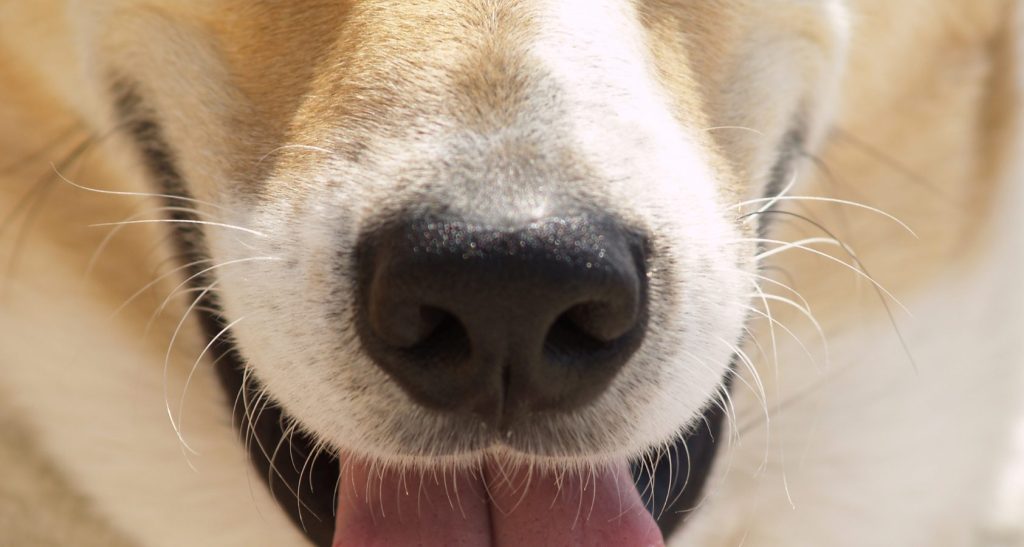
9 Possible Reasons For Cold Mouth
After researching, we compiled the top nine reasons why your dog might be experiencing a cold mouth.
Below are nine possible reasons as to what might be causing a dog’s cold mouth.
1. Drop In Temperature
Dogs come from a warm and humid environment, so their bodies don’t naturally produce enough heat to keep their mouths warm. When it’s cold outside, the temperature in your dog’s mouth is often a few degrees lower than your own body temperature. Cold temperatures can also cause your dog’s mouth to feel chapped or dry.
Dogs’ lips are incredibly soft and delicate, so even slight temperature changes can cause irritation. That’s why a sudden drop in temperature, like from sunny spring to cold winter, can cause your dog’s mouth to feel dry, chapped, and itchy and even cold.
2. Dry Mouth Syndrome
Dry mouth syndrome, or dysgeusia, is a condition that causes your dog to have a reduced sense of taste and smell. It can affect both young and old dogs, and it could be caused by a number of factors. One factor that might contribute to your dog suffering from dry mouth syndrome is a drop in oral fluids.
Dogs are very social animals and have a thirst for human saliva, which is mostly water. Dogs also produce saliva when they eat, drink, or pant. If you don’t brush your dog’s teeth regularly, their mouth could become more dry than normal and possibly cold.
3. Cold Foods and Treats
Even though your dog’s mouth might feel like a freezer, it’s actually warm and moist. If your dog’s diet includes meats, fruits, or vegetables that are extremely cold, they may experience pain and discomfort in their mouth.
When your dog eats frozen food or treats, a certain amount of liquid in the food thaws and causes your dog to taste it. That’s why it’s recommended to let your dog eat frozen food at room temperature. Cold treats or foods may also cause your dog to have a decreased moisture in the mouth, which can lead to dental problems and a cold mouth feeling.
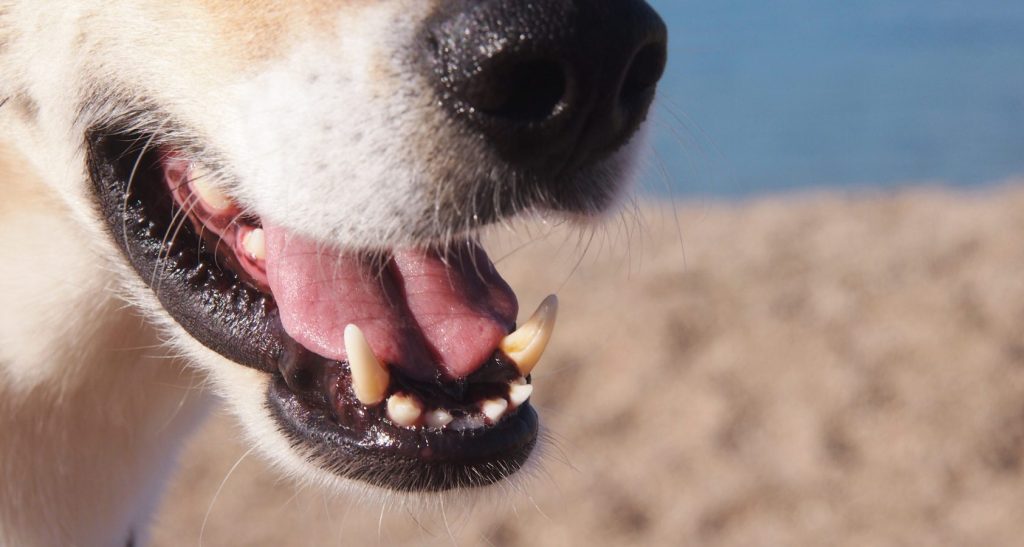
4. Licking Cold Surfaces
Dogs have long tongues with cat-like papillae that help them taste the world around them. When a dog licks an icy surface, it can cause pain and damage to the tongue. Chapped lips, like dry mouth syndrome, can cause licking surfaces to also feel icy. This could increase the likelihood of your dog developing gingivitis, or bacterial infection of the gums.
5. Hypothalamic Disease
Dogs are descended from wolfs, so they are naturally predisposed to many health conditions that can be found in wolves.
Some of those health conditions include hypothalamic disease, which can cause your dog’s mouth to feel extremely cold. When a dog suffers from hypothalamic diseases, like in this case, the hypothalamus in their brain is damaged or disrupted. This can cause a dog to have extreme mood swings, routine changes, excessive drooling, and a possible cold mouth.
6. Hypothyroidism
Hypothyroidism is a condition in which the thyroid gland in your dog’s neck doesn’t produce enough thyroid hormones. The thyroid hormones are responsible for regulating your dog’s body temperature, as well as their metabolism, which is why your dog might feel chilled out. The most common sign of hypothyroidism is a chilled-out dog that doesn’t feel warm when touched and a cold mouth.
7. They Are Excessively Cold
Dogs are very active. They get cold when they are inactive, and they could be experiencing excessive cold from sleeping in the cold outdoors, or getting into an icy puddle. There are endless possibilities.

8. Breathing Problems
Cold mouths can also be a sign of a breathing problem.
A dog with a cold mouth could have a shallow or collapsed trachea, which is the part of their windpipe that connects the throat with their lungs. A trachea that’s collapsed can lead to several breathing problems, including having a cold mouth. Shallow breathing can cause your dog to cough and sneeze frequently, and a cold mouth can make it hard for them to pant which can cause overheating.
9. Medications
Cold mouth syndrome can be a sign of medications, too. Some medications, like anti-depressants, can cause a drop in body temperature, which can make your dog feel cold.
Why Is My Dog’s Tongue So Cold?
The most common reason is panting dogs regulate their temperature mostly through panting. As they pant, the moisture on their tongue evaporates and the air around the moist tissue cools it down.
Although your dog’s mouth feels cold, the tissues inside their mouth are actually quite warm. This is why their tongue feels so cold. Your dog’s tongue is also incredibly sensitive to temperature. If they accidentally lick a chilly surface, their tongue will send a very strong signal to their brain that their entire mouth is also chilly. Similar to humans, dogs’ tongues have taste buds that allow them to enjoy the flavors of their food. When your dog’s mouth feels cold, their tongue also feels cold because it’s trying to warm up their mouth.
Concerned if My Dogs Mouth Is Cold?
No, not really. Cold mouth is common in dogs, but it’s not always a cause for concern.
A dog’s mouth will feel dry/cold if they don’t have enough saliva in its mouth. Your dog could be suffering from a cold mouth if they don’t have any treats or chews in their mouth for a few hours each day. Or, they could simply be enjoying a cool day! A cold mouth is nothing to be concerned about, but you should keep an eye on it and see if it changes.
If your dog’s mouth starts to feel extremely cold, see your vet to rule out any underlying medical issues.
What Do I Do If My Dog’s Mouth Is Cold?
When your dog’s mouth is cold, give them a treat, a chew toy, or a generous serving of water. If their mouth is extremely cold, they may have trouble swallowing, so you may want to give them a couple of sips of water as well. Warm up your dog’s water by putting some boiling water on the top of a pot and setting it on the stove.
If your dog’s mouth is extremely cold, you can use a hand warmer to warm up their mouth. Your dog can also be placed in a bucket of warm water if necessary. If their mouth isn’t changing call your vet for advice on the situation.
Bottom Line – A Dogs Cold Mouth
Your dog’s mouth might feel like a deep, cool cave, but it’s quite the opposite. Dogs have an excellent sense of smell, thanks to their 100 million scent receptors that line their nasal cavity and help them sniff out hidden treats. They also have moist mouths and super-sensitive taste buds. These are just some of the reasons your dog’s mouth can feel so chilly to you.
To understand why your pup’s mouth feels so chilly, take a look at a possible 9 different reasons as to why their mouths might be cold mentioned above.
About The Author
I'm a content writer and researcher. But bottom line, I loveee animals. I had my first animal which was a guinea pig at age 8. Later had a bunny, dog and a lot, a lot of fish. Writing about what I know about pets will allow me to share my knowledge and love for them with everyone else. Dealing with dogs my entire life, I know a lot.

